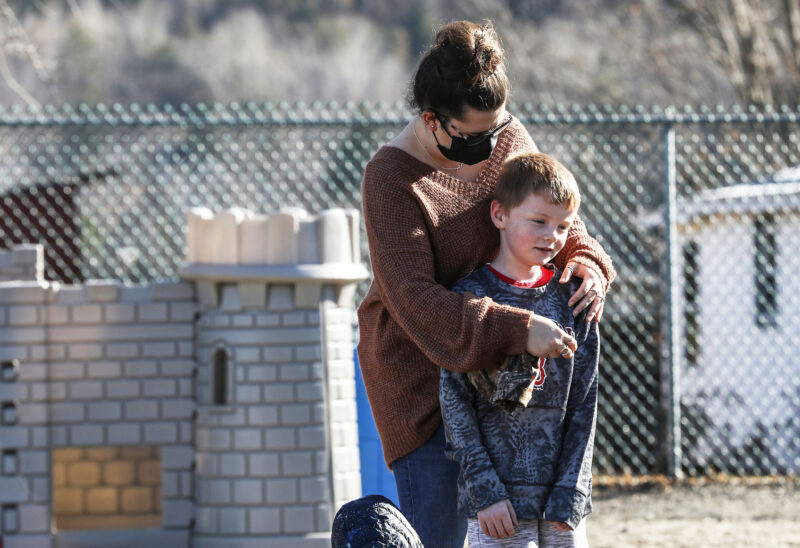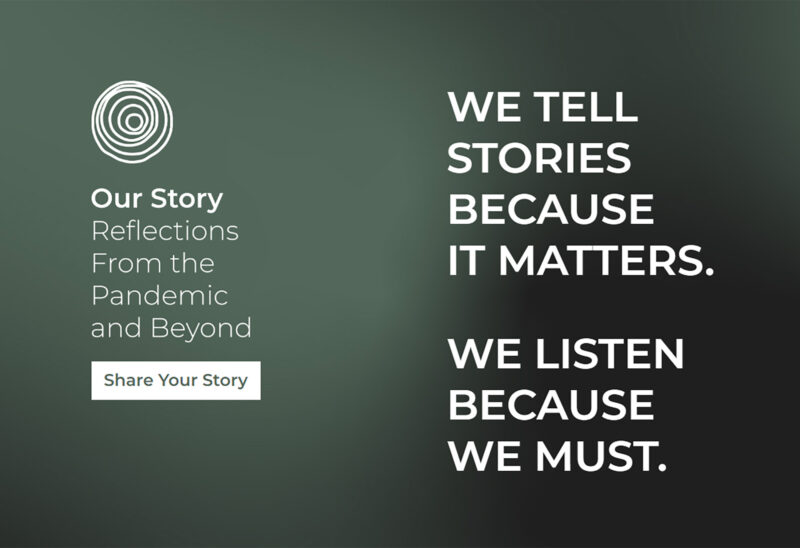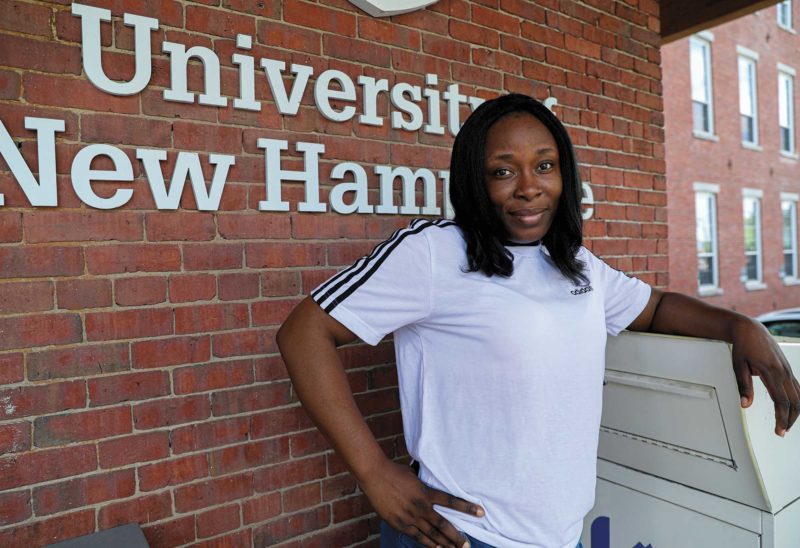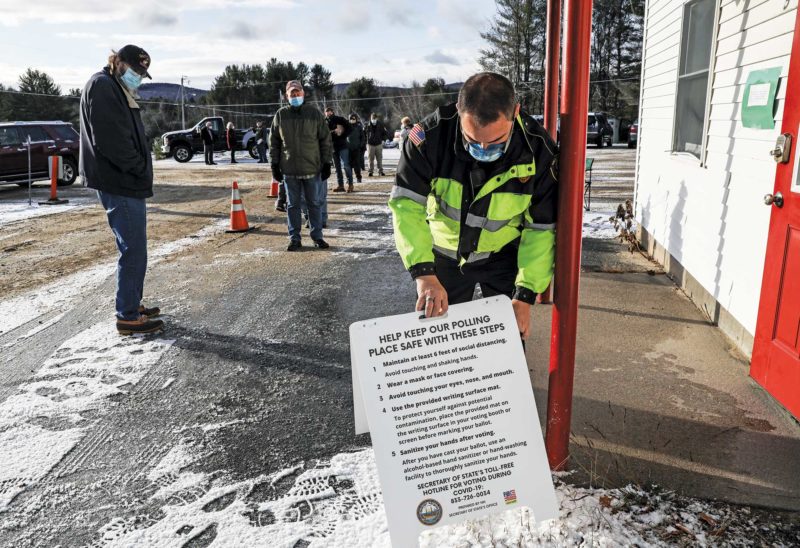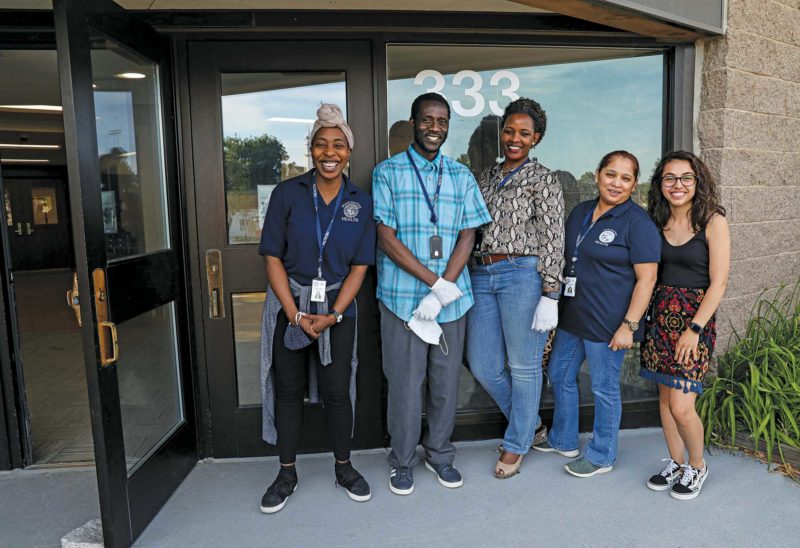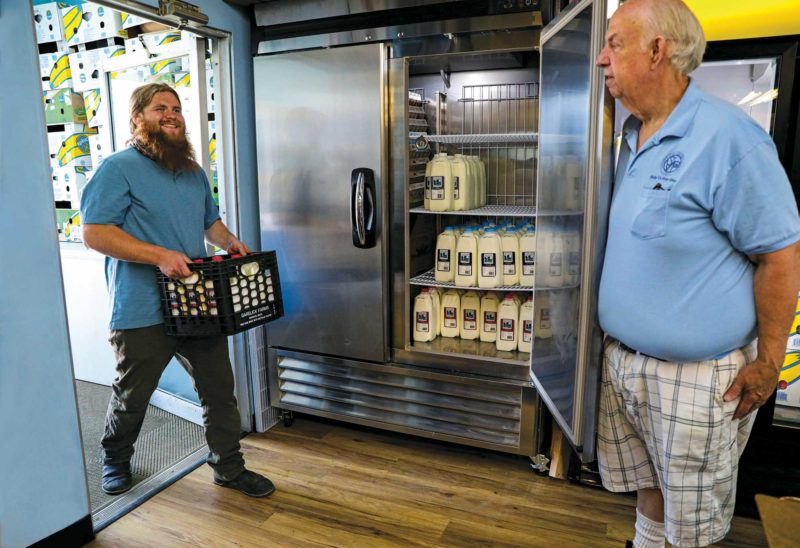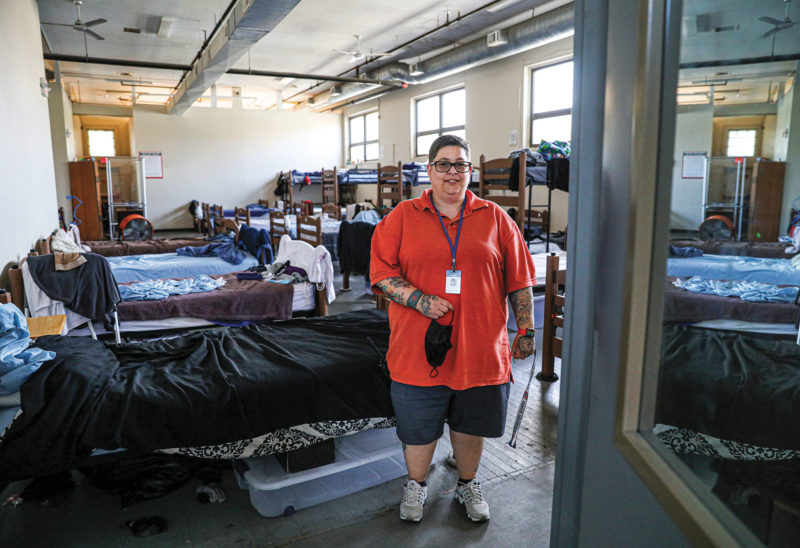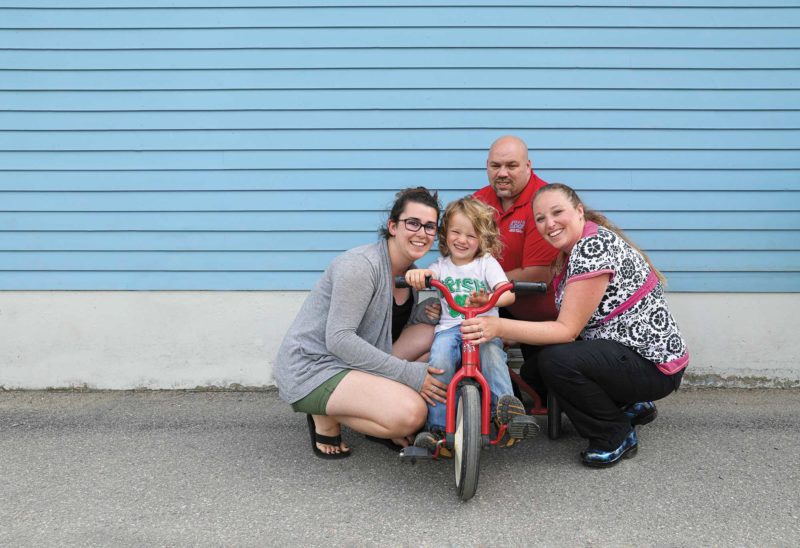Lisa is a home-health aide and a single parent of two children whose own health history puts her in a high-risk category for Covid.
When the pandemic hit, she scaled back her work to caring exclusively for her aged grandparents, who had raised her.
They died within a few months of one another last year — her grandmother in February and her grandfather in June. Unable to work because of her own health risks, Lisa’s financial situation became perilous.
The expanded Child Tax Credit, which began making payments to families with young children in July, helped this family maintain stability through a very difficult time. The credit extended $3,600 annually to families for every child in a household under age six and $3,000 for every child between six and 17. An estimated 222,000 New Hampshire children were eligible for the credit.
“My 16-year-old daughter was worried. She came to me and said ‘mom, how are you going to be able to pay for things? For food?’ I felt good to be able to say ‘it is going to be okay.’ In the times of uncertainty that we are in, it is nice to offer them a little bit of certainty: You are going to have food, bills paid, have a place to be able to do your homework and food on the table.”
Lisa, received direct monthly payments of $550 through the expanded CTC — $250 for her 16-year-old $300 for her five-year-old. The money provided this family with important security and stability.
“I was able to make sure the kids had what they needed and help make sure we had a roof over our heads and lights on. I am sure I speak for so many parents when I say the CTC credit saved us.”
Lisa let others in her community know they were eligible for the tax credit and encouraged them to file for it.
“I feel it has helped a lot of kids in poverty,” Lisa said.
Research from Columbia University underscores that: Researchers estimated that the expanded CTC kept 3.8 million children out of poverty in November, 2021 — which translates to a 30 percent dip in the overall child poverty rate in the U.S.
The Foundation, through a partnership with national funders and NH Housing, made grants to a number of nonprofit organizations in New Hampshire that were doing outreach to families to let them know about their eligibility for the expanded tax credit — and to help them apply. Outreach was done at the same time to help people understand their eligibility for emergency rental assistance made available through federal Covid-relief legislation.
Krissy and Edwin Mendez have a six-year-old and a toddler.
Both parents lost work due to the pandemic — Krissy was in a contract position when school went remote. Her contract did not include maternity leave, which she was about to need. Edwin was a union construction worker, but all the jobs were shut down.
“I was stuck because it was like ‘how am I going to go back to work and get child care for two kids? I had to take out retirement, we drained our entire savings,” Krissy said. The unemployment boost provided by the federal government helped — but not enough.
The family learned about the expanded child tax credit through the United Way of Greater Nashua’s “Smart Start” coalition, where Krissy was a volunteer.
When Krissy and Edwin — who file taxes separately — applied for the credit, it meant another $600 per month was coming into their household.
That extra money meant that the Mendez family could afford after-school care and summer camp for their eldest daughter — which freed Krissy up the time to find another job.
“It provided my family exactly what we needed to get back on our feet because how do you start doing those things if you don’t have something to start off with?” Krissy said.
Krissy was able to find a remote job with a large early childhood development center that has 40 locations in Massachusetts and New Hampshire. She works on recruitment of staff and enrollment of families. That job comes with the benefit of half-tuition paid for the family’s 19-month-old.
Edwin has also made a career switch — putting his criminal justice degree to work and taking a job as a corrections officer.
“This option that was given to families was a smart option,” Krissy said, “And I am sure it helped other families similar to ours get back on their feet.”
The monthly payments ended in December. Proponents of the credit advocated for it to be made permanent — as in Canada and many European countries — but Congress allowed it to expire at the end of 2021. People who received the payments remain eligible for another six months’ worth of payments, but must file a tax return this year to claim that credit.
Families — including those with dual incomes — say the help has been critical.
Janell Davis is senior director of a licensed child care center at the Nashua Boys & Girls Club. She works full-time, holds a bachelor’s degree in human development and she and her husband have three kids — now 10, 11 and 12 years old.
The monthly payment this family received via the expanded child tax credit amounted to about $750. That covered their monthly car payment, with some left over. “Then I could put the rest toward other bills, so I was able to stay on top of my bills,” Janell said. “I usually have to figure out which month I am going to pay what.”
That means that sometimes, she does not pay the whole electric bill.
“Being able to have that paid out monthly, it definitely helped families relieve the stress of not being able to meet the bills. I work really hard for my money,” she said.
By the end of the period of the monthly payments of the CTC, Janell’s credit score had increased — a critical step on the ladder of economic mobility.
The work to make people aware of the child tax credits will have ripple effects of spreading awareness of additional tax credits — like the earned income tax credit — that provide critical tax relief for families.
Jacqueline, a recent high school graduate, works a fast-food job to help support her mom and siblings. She learned about her potential eligibility for the expanded child tax credit from Overcomers Support Services, one of the nonprofit organizations funded to do outreach work. Overcomers, which works with New Americans, spread the word using the WhatsApp mobile messaging platform.
Because her income supports her siblings, she was eligible for the tax credit. The family, she said, used it “to buy clothes and toilet paper and add to the rent when we didn’t have enough.”
After the expanded child tax credit was rolled back at the end of 2021, researchers at the Center on Poverty and Social Policy at Columbia University report, the child poverty rate in the United States increased from around 12 percent to 17 percent in a single month. Which means that about 3.7 million American children were back to living in poverty.
Note: “Lisa” is a pseudonym.







